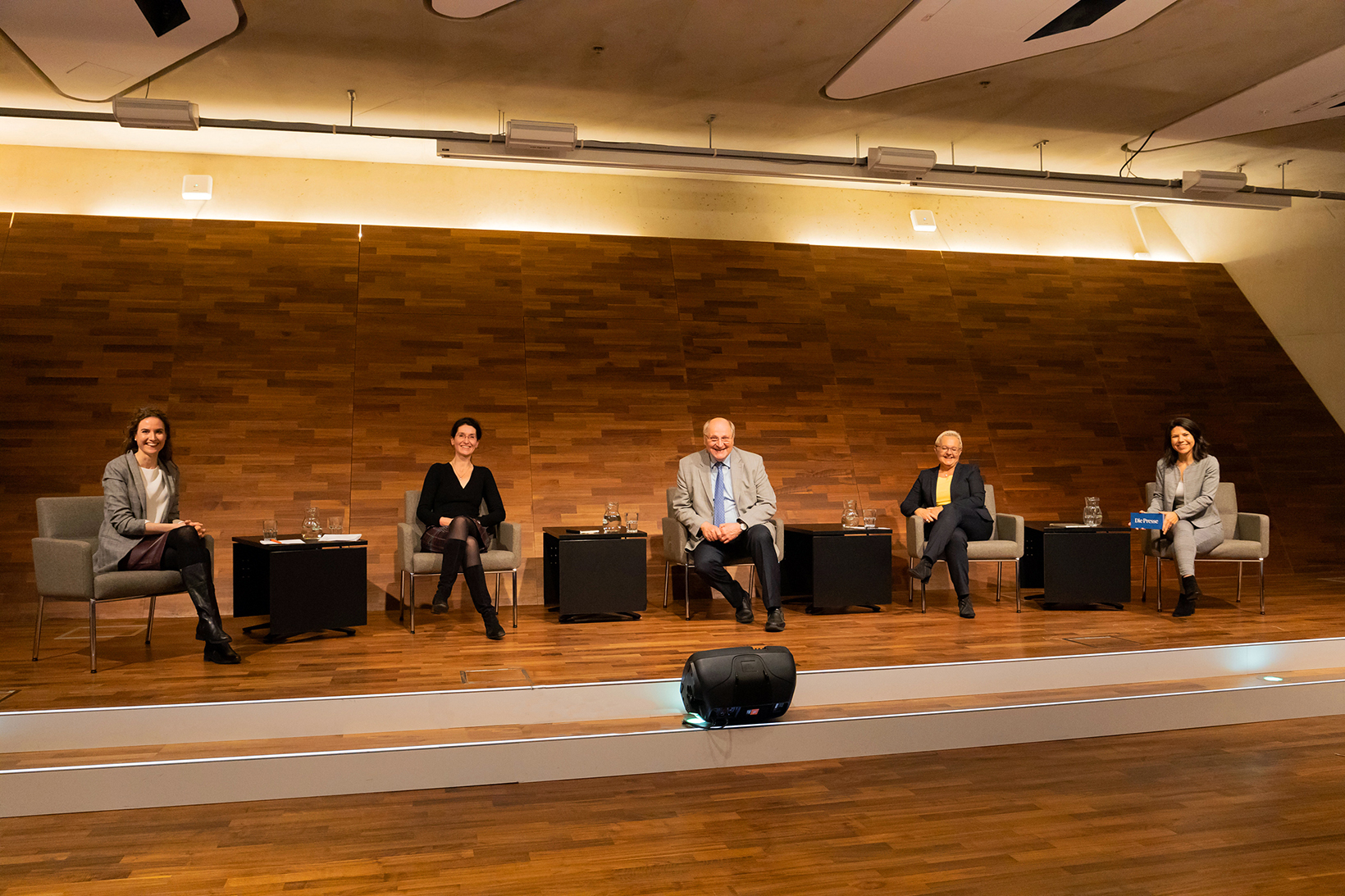Current and Controversial
Fascinating topics, interesting conversation partners, and future-oriented ideas: All of these characterize WU’s popular discussion series ‘WU matters. WU talks.’ The 100th event in the series was held on December 15, 2021. In an event entitled “Geoeconomics and the zero-sum game,” Gabriel Felbermayr, the director of the Austrian Institute of Economic Research and a WU professor, explained why trust between countries is dwindling and how economic instruments are used as leverage in politics.
Since the first event on December 20, 2016
- 403 panel guests & speakers
- Over 21,000 attendees
2021
- 91 panel guests & speakers
- 3,548 attendees
In the 2021 summer semester, the focus was on the pandemic and its impact on various aspects of our lives, but also on globalization and new sources of energy. In the winter semester, the topics of the events varied widely and dealt, among other things, with new blockchain technologies, corporate sustainability efforts, and the “we” in politics.

2021 event topics
- Student allocation in Vienna’s schools – Status quo and need for reform
- Fake news! Organizational communication in the digital age
- Tourism as a victim of the coronavirus – Lockdown after lockdown
- “I have nothing against foreigners, but …” – The two sides of being international
- The economy in the (Covid) crisis – Do we need a new economic policy?
- The trend towards de-globalization – Putting brakes on international development
- What COVID-19 means for women – Has the pandemic negated decades of progress?
- Digital marketing in the post-cookie era – Which technologies have a future?
- The energy system of the future – Moving towards decarbonization
- Improve health with behavioral economics – A new panacea?
- Chances and limits of artificial intelligence – When the computer decides about our insurance coverage
- Fewer drop-outs through increased resilience? Lowering academic drop-out rates
- Have we run out of compassion? Donation behavior during the pandemic
- The federal constitution turns 100 – Constitutional law vs. constitutional reality
- WU Manager of the Year 2021 – Silvia Angelo on infrastructure and the new mobility
- Blockchain technology – Requirements and limitations
- Suddenly bankrupt – Bankruptcy law in the COVID-19 economic crisis
- The “we” in politics – How language shapes our reality
- WU Awards and Best Paper Awards 2021
- Sustainability counts! How can we reach the business community?
- Geoeconomics and the zero-sum game – Consequences for trade policy
A Manager with a Vision
WU is proud of its successful alumna Silvia Angelo, who was selected as the 2021 WU Manager of the Year. Silvia Angelo is an experienced, visionary top manager who has always supported the advancement of women as a matter of course and who is actively committed to this cause. As the CFO of ÖBB Infrastruktur, future-related issues are also important to her, like sustainability and diversity. She is also actively involved in the transformation of mobility, which will significantly shape the future of upcoming generations.
Knowledge for Kids
Every year, WU researchers look forward to the summer, when our classrooms are filled with children between the ages of 7 and 12 having a good time. Unlike the previous year, the 2021 Children’s University could mostly be held on campus. “What actually happens in court?” and “How does money get on your cell phone?” are just a few of the questions our researchers answered in the classroom. In workshops, kids investigated how difficult it is to really understand others or learned how to program computer games themselves. 251 children attended classes on campus and participated enthusiastically.
For those who couldn’t come to us, we offered nine online events. These were viewed 1,200 times. The livestreams “Tapir Fridolin and the Future” and “Can you touch bitcoins? Where can I get cryptocurrencies?” were the most popular.

